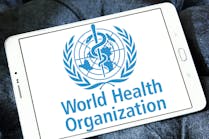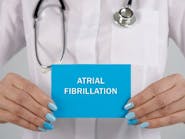Healthcare advocacy group says new PrEP access and coverage act will increase access, decrease stigma for those at-risk for HIV
The American Academy of HIV Medicine (AAHIVM), a national independent organization of healthcare professionals dedicated to providing excellence in HIV care and prevention, announced support of the recently introduced PrEP Access and Coverage Act. U.S. Senator Kamala D. Harris (D-CA) introduced the legislation in hopes of expanding access to pre-exposure prophylaxis (PrEP), a medication that according to the Centers for Disease Control (CDC) reduces the risk of HIV infection by up to 92 percent when taken correctly.
At present, 1.2 million people in the U.S. are at relatively high risk of acquiring HIV infection but only about 77,000 people were prescribed PrEP in 2016. PrEP has been implemented with limited scale in the United States, primarily among the population of men-who-have-sex-with-men (MSM). But there are other populations at risk that would greatly benefit that are not currently taking PrE, said AAHIVM. For instance, women make up only 7 percent of all PrEP users, despite accounting for 19 percent of all new HIV diagnoses.
The PrEP Access and Coverage Act addresses many of the current PrEP barriers by:
- Requiring all public and private health insurance plans to cover the drug—as well as all required tests and follow-up visits—without a copay.
- Funding a grant program to assist states, territories, and tribal communities in facilitating access to PrEP for people who lack insurance and reducing disparities in access to PrEP.
- Prohibiting insurance companies from denying coverage to customers who take PrEP or charging them higher premiums.
- Funding a public education campaign by educating the public in high-need communities about it, thus encouraging their interest, as well as their access to it.
The introduction of the PrEP Access and Coverage Act closely followed a June 11 announcement by the U.S. Preventive Services Task Force (USPSTF) that PrEP would be receiving its highest rating of an “A” grade. The Affordable Care Act (ACA) requires that most private insurance plans and Medicaid expansion programs cover the entire cost of medications that have a USPSTF A or B rating, with no ancillary cost-sharing paid by the consumer. This new USPSTF rating, therefore, should greatly improve PrEP access for those enrolled in ACA plans and in those Medicaid expansion states, suggested AAHIVM.






